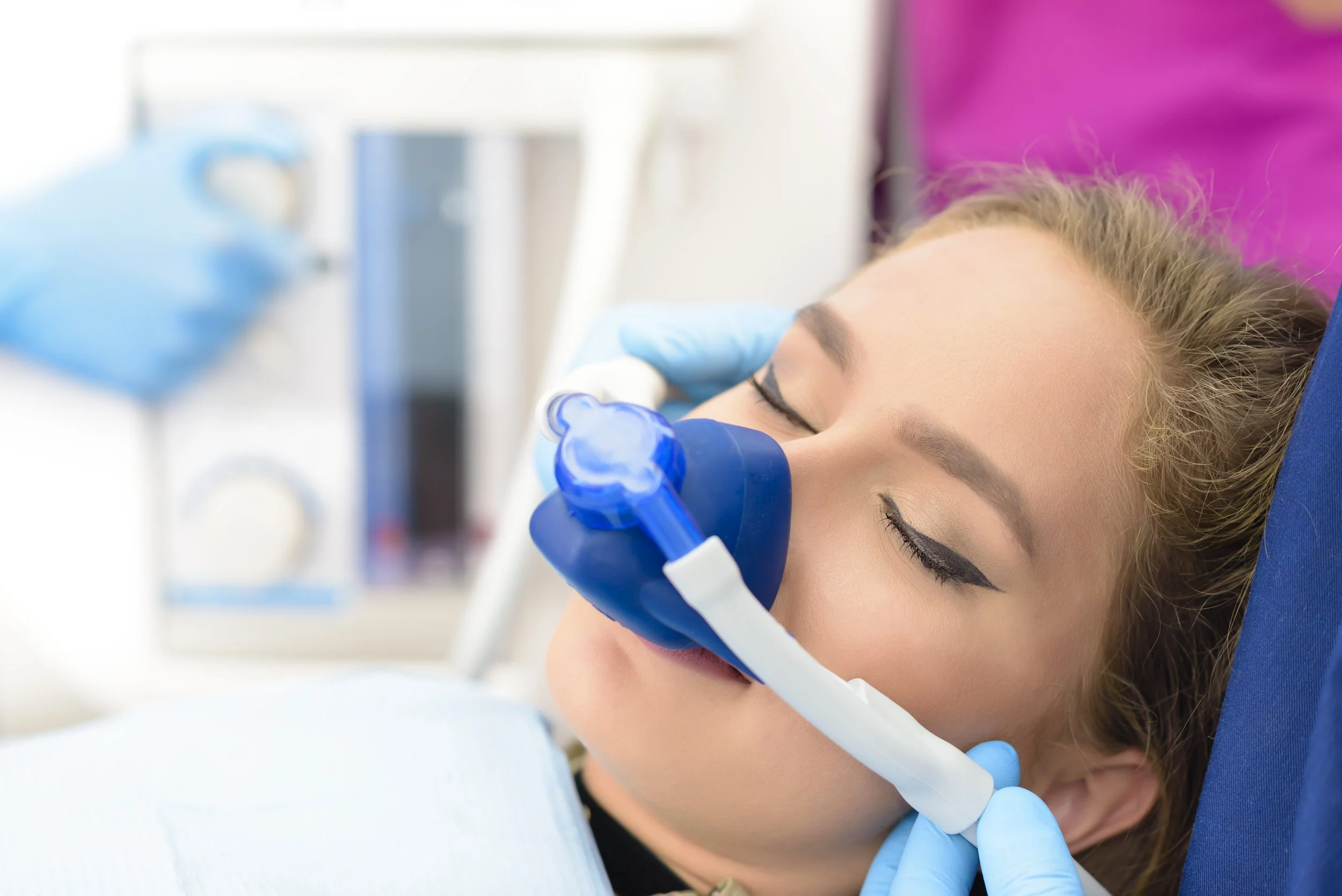Sedation Dentistry in Toronto
Sedation for Dentistry in Toronto — Calm, Comfortable, and Safe Dental Care
Feel Relaxed and Confident During Your Dental Treatment
If dental treatment makes you feel nervous or anxious, sedation can help.
At Implant Dentistry Toronto, Dr. Onur Cavus, BDS, PhD, provides moderate conscious sedation to help you remain calm, comfortable, and relaxed throughout your procedure — without being asleep.
Dr. Cavus is certified by the Royal College of Dental Surgeons of Ontario (RCDSO) to provide nitrous oxide sedation, IV sedation and oral sedation safely in-office.
What Is Sedation Dentistry?
Sedation dentistry involves using carefully administered medications to reduce anxiety and create a state of deep relaxation during dental treatment.
You remain awake, responsive, and breathing normally, yet most patients feel time pass quickly and remember little of the procedure.
Levels of Sedation Explained
Minimal Sedation – You’re calm but fully alert (usually achieved with laughing gas or oral sedation).
Moderate Sedation – You feel drowsy and relaxed but stay conscious; this includes oral and IV sedation performed by Dr. Cavus.
Deep Sedation / General Anesthesia – You’re completely unconscious; this is performed only in hospital or surgical center settings, by anesthesiologists.
Types of Sedation Offered
IV Sedation (Moderate Conscious Sedation) – Medication is administered through a small IV line, allowing precise control over your comfort level.
You’ll feel deeply relaxed, remain conscious, and recover quickly afterward.
Oral Sedation – anti-anxiety pill taken by mouth before treatment helps you relax.
👉 Learn more about Oral Sedation →
Nitrous Oxide (Laughing Gas) – A gentle inhaled sedative ideal for mild anxiety or shorter procedures.
👉 Learn more about Laughing Gas →
Who Can Benefit From Sedation Dentistry
Patients with dental anxiety or past negative experiences
Those requiring complex or lengthy treatments (implants, extractions, grafting)
Individuals with a strong gag reflex
Patients who prefer a calm, low-stress dental experience
Is Sedation Dentistry Safe?
Yes. All sedation procedures are performed under strict safety protocols.
Your vital signs — including oxygen levels, heart rate, and blood pressure — are continuously monitored.
Dr. Cavus and his trained team follow RCDSO guidelines to ensure every patient’s comfort and safety from start to recovery.
Book a Consultation
Discuss your comfort options with Dr. Cavus to find the most suitable level of sedation for your needs.
Answers to Common Questions
-
No. Under IV sedation, you remain awake and breathing on your own, but feel deeply relaxed and detached from your surroundings.
Most patients remember little or nothing about the procedure.
This level of sedation is called moderate conscious sedation, and is safely administered by Dr. Cavus, who is certified by the Royal College of Dental Surgeons of Ontario (RCDSO).
-
Yes. When performed by a certified provider under proper monitoring, sedation dentistry is very safe.
Your oxygen levels, heart rate, and blood pressure are continuously observed throughout the procedure.
-
IV sedation: administered through a vein, produces a deeper level of relaxation, and allows precise control of dosage.
Oral sedation: taken as a pill before treatment; slower onset and longer recovery.
Laughing gas (nitrous oxide): inhaled through a mask; mild, fast-acting, and wears off immediately after treatment.
-
You can drive yourself home only after laughing gas sedation, as its effects wear off within minutes.
If you receive oral or IV sedation, you’ll need a responsible adult to drive you home and stay with you for several hours.
-
Sedation is helpful for patients who experience dental anxiety, have a strong gag reflex, require longer treatments, or simply prefer a calmer experience.
Dr. Cavus evaluates each patient individually to determine the safest and most effective option.
-
Yes. IV sedation is ideal for complex procedures like dental implant placement and wisdom teeth removal, allowing you to remain calm and unaware of time while the treatment is completed efficiently and safely.
-
Most patients recover comfortably within 3–5 days.
Mild swelling and tenderness are normal.
Following post-operative care instructions — such as using cold compresses and eating soft foods — helps speed recovery.
-
With local anesthesia and sedation options, patients typically feel no pain during the procedure.
After surgery, mild discomfort can be managed with prescribed medications and home care.
-
In most cases, yes.
If all four wisdom teeth need to be removed, Dr. Cavus often performs the procedure in a single appointment, especially under IV sedation for comfort and efficiency.
-
The ideal age is typically between 15 and 25, before the roots fully develop.
Removing wisdom teeth early can prevent pain, crowding, and bone complications later in life.
